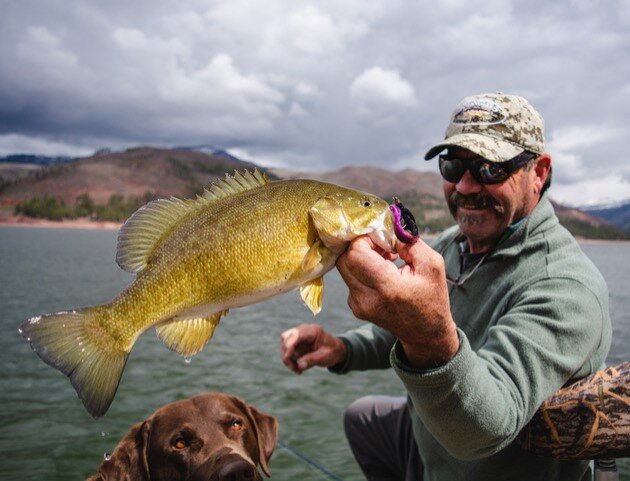STREAM Girls. Function as state-wide CTU coordinator with Colorado Girl Scouts Council. Facilitate program liability and risk management requirements. Coordinate event scheduling and work with volunteer leaders to assist program delivery, regional volunteer pool management, and volunteer training. Oversee equipment and supplies. Manage chapter outreach and volunteer recruitment. Identify and cultivate new volunteer partners.
RiverWatch. Work with chapters and school RiverWatch sites to advance outreach of both watershed education and water quality monitoring. Complete training for RiverWatch trainer certification to assist in training of new participants/sites and in conducting site visits for QA/QC purposes.
Youth camps. Work with existing and future recruited volunteers to ensure successful youth conservation camps on an annual basis including our high-school one-week summer camp. Facilitate meeting and maintaining state licensing requirements. Assist with camp administration, records tracking, outreach and camper recruiting. Provide assistance to chapters that wish to establish localized camp programs for youth in summer.
Program evaluation. Develop, refine and distribute education evaluation tools for use both in tracking and improving Colorado TU programming and as a resource for local chapters, partner groups and schools. Host training for volunteer leaders and evaluation participants. Serve as a central point for evaluation data collection, entry and analysis.
Adapt Programming for Families, Virtual Delivery, and DIY. Transform existing programming to virtual delivery and DIY family opportunities. Explore channels for maintaining significant outreach and personal connection.
Grantwriting and donor cultivation. Support fundraising efforts, in coordination with CTU development staff and Headwaters Committee, to cultivate potential donors for youth education programs. Identify, prepare and submit grant applications to prospective foundation and corporate giving programs for youth education efforts. Develop and maintain a management information system of quality information about grants, foundations, revenue sources, and donors. Prepare written reports on youth programs for grant and funder reporting. This position is funded primarily through successfully sustaining restricted fund sources.
Recruit and assist new sites for Trout Unlimited educational programs. Develop relationships with mentoring organizations, schools, and other youth-focused partners in order to bring Trout Unlimited Stream of Engagement youth programming to new audiences. With new sites, assist in building capacity for delivering appropriate Stream of Engagement programs (Stream Explorers, Trout in the Classroom, Outdoor Mentors, National Fishing in Schools Program, etc.) using a “gradual release” method by which CTU would provide appropriate levels of support initially while local volunteers, teachers, etc. would gradually take on more responsibility for continuing programming. Refine curricula for these programs based on experiences from participating sites.
Other duties. Provide content relevant to the above program areas for the Colorado TU blog, website, social media outlets and High Country Angler magazine; participate in core Colorado TU events such as the Annual Gala, Rendezvous, and Spring Meeting (including volunteer training opportunities); collaborate in other Colorado TU campaigns and initiatives, especially where there are crossover opportunities with youth education efforts.
Qualifications:
Bachelors or graduate degree in a related field.
Previous experience or demonstrated ability with development and/or delivery of youth education programs.
Strong communications and interpersonal skills.
Experience in managing partnership programs or projects (e.g., relationships with agencies, nonprofits, etc.)
Fundraising and/or grant writing experience preferred.
Ability to recruit and manage volunteers.
Experience coordinating special events for community engagement
Ability to travel statewide and to work weekend and evening hours when needed.
Proficiency with Microsoft Office and Google suites.
Background knowledge of watershed and fishery issues and dedication to conservation; specific experience with water quality monitoring is a plus.
Must have reliable transportation.
Ability to lift and carry objects weighing up to 30 pounds.
Candidates must pass a background check for involvement with youth programs.
Salary Range: $32 – 36,000 plus excellent benefits, depending upon experience. Relocation not provided.
To apply, please email cover letter and resume by June 19 to: David Nickum, Executive Director, Colorado Trout Unlimited, at dnickum@tu.org. No phone calls please.
TU is an Equal Employment Opportunity & Affirmative Action Employer pursuant to Section 503 of the Rehabilitation Act & Vietnam Era Veterans Readjustment Assistant Act.
TU hires staff without regard to race, color, religion, national origin, age, gender, sexual orientation, marital status or disability.



















